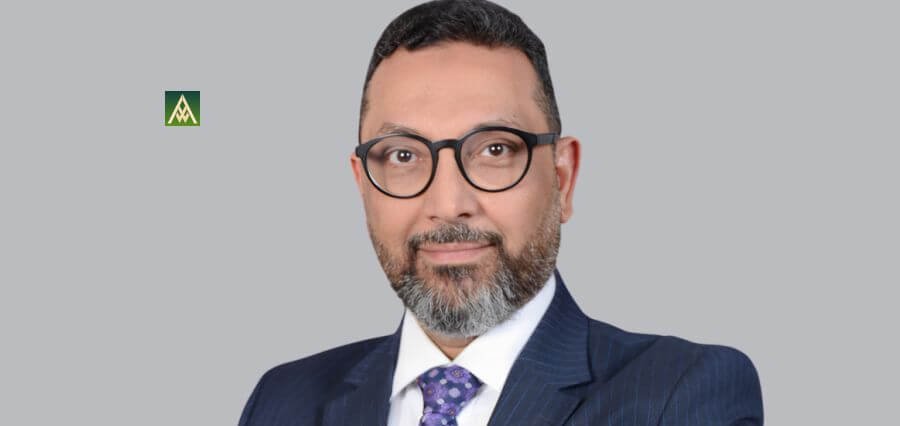Leveraging Technology for Enhanced Financial Decision-Making!
The financial sector is always changing, and leaders who are adept with statistics and strategy will have a significant impact on how firms develop in the future. These people not only manage intricate financial flows but also stimulate growth and innovation. They are unique and priceless assets to their organizations and the industry because of their capacity to turn obstacles into opportunities.
Remarkable Chief Financial Officer Amro Farag started his career in finance in 1994 at American Express. He began his career as a sales representative and soon moved into positions that helped him develop his accounting knowledge. This finally inspired him to seek a CPA certification.
His path into the Big Four audit companies was facilitated by this accomplishment, which gave him the necessary experience to set the groundwork for his future success.
Amro’s strategic approach to financial planning and his determination to use technology to make data-driven decisions are outstanding instances of his dedication to excellence within the banking industry. In addition to improving organizational performance, his creative vision establishes new benchmarks for financial leadership.
Here are some interview highlights:
What inspired you to pursue a career in finance, and how did you become a CFO?
While I started my career at American Express early in 1994. I worked as a sales representative in charge of merchant relations and promoting Amex card acceptance. I dealt with numbers and reconciliation of accounts and planned to transfer to accounting departments where I meant to be based on my study and passion to practice several roles in accounts starting from A/P, AR, and GL.
I then started studying for the CPA exam in 1999. This milestone has shifted my career to achieve my dream job and join the big 4 audit firms to rocket start a rewarding career growth in finance and accounting consulting. Later on, I joined a market-leading company in the retail industry as an international finance director, moving forward to a well-deserved CFO title backed with qualifications, skills, and experience.
Can you describe a key achievement in your career that you believe sets you apart as a visionary CFO?
There is no shortcut to this journey. Passing the CPA. Exam from the California State Board of Accountancy. Presented by AICPA earlier in 2004 has distinguished me from the crowed and supported me with the required knowledge, skills, and qualifications to understand the accounting standards and related topics that each organization needs to apply.
Year after year. And from industry to industry, accumulate the experience to deal with different organizations, and continuing education is a key to being updated with what is new in the market and what CFOs need to look for to participate in the growth success. It is a vital role that will help any organization to plan for success.
How do you approach strategic planning within your organization, and what methodologies do you employ?
Strategic planning is the book coversheet and headline in the CFO role. Any company must have a clear strategic plan to succeed. This needs an experienced CFO who understands the market trend and the industry dynamics to help the organization plan for the long term.
Usually, after deep analysis of all aspects of strategic planning in the company, I start an open discussion with key stakeholders, the CEO, and the business owners to translate their vision into numbers and forecast the future of a company over the short, medium, and long term to ensure we are on the right track to achieve the vision and monitor it to ensure the company is heading toward it. The methodology applied is based on the organization size, and market share.
Once I analyze the past performance of the company and understand all aspects of its business model, I start to engage the key stakeholders to put the vision and mission of the organization and create an implementation plan and forecast the future for the next ten years.
In what ways do you support technology and data analytics to handle financial performance and decision-making?
In these recent years, we as CFO are supported with technology like never before. From sophisticated ERP’s to PBI and AI. We have enough tools to use for big data and generate reliable and up-to-date information in a very simple way to read and understand.
Thank you to Microsoft, Apple, and other technology companies like Oracle, SAP, and many more who made our job easy. So in lieu of that, we must support any transformation initiative in the organization to use technology.
What are the most significant challenges you foresee for CFOs in 2024, and how do you plan to address them?
The most significant challenges any CFO faces this year is how to select the right technology to use in the company and how to utilize it to the max. It is also required to be updated with new regulations and standards and mitigate the incompliance risk.
As we face new demands from regulators to comply with tax law and integrate with them via technology, the market is spread with service providers.
How do you balance short-term financial goals with long-term strategic objectives?
The good thing about short-term goals is that they are easy to see and measure. As the company operates daily, you can get a clear idea of where you are from your plan. You can get a daily dashboard to take informative daily decisions.
However, the strategic goal is easy to divert if things go wrong while you focus on the short-term plan. Regular interactions with decision makers, the CEO, and the board and setting the KPI will ensure a timely measure and balance the GAP between the short-term plan and strategic objectives.
What role does sustainability play in your financial strategy, and how do you integrate ESG principles into your operations?
Despite the importance of ESG principles in any organization, many companies still crawl slowly the way to implement it. I think we as CFOs should participate actively and get more orientation and training to highlight sustainability and ESG in the financial strategy.
Because the emphasis is on ESG compliance from regulators. The companies hardly put enough resources to support unless they are big enough to do so.
Can you share an example of how you’ve furthered innovation within your finance team or organization?
As the leading organization in the industry, “SaudConult” has been established since 1965 as the first engineering Company in KSA. Founded by the Dr. Eng.Tarek Al Shawaf. Despite the big challenges we face from change management and implementation obstacles, we achieved a good stage of transformation and are looking for more technology to streamline finance with operations.
What strategies do you take on to attract, retain, and develop talent within your finance team?
I adopt a retention strategy where existing or new joiners feel job security and are rewarded for performance. New hires join and integrate with the team through on-the-job training and facilitate the learning process to take its time and familiarize themselves with the job requirements, monitor the performance, and provide feedback on a regular basis.
How do you view the advancing role of the CFO in today’s business era, particularly in relation to digital transformation?
The CFO role has been changing regularly from old school to technology ERA, so the CFOs should be able to keep up learning, reading, and joining peer groups and the business community to stay alert and up-to-date with any changes impacting finance and need to comply. It is now much faster and more critical to catch the right information to deal with and filter what is useful or what is time waste.
What advice would you give to aspiring CFOs looking to make their mark in the finance industry?
Learn, read, be alert, work hard, and stay updated. In our role, you must be the backbone of the organization to have the knowledge to share the new updates and take the right decision.
Looking ahead, what are your personal goals for the next year as a CFO, and how do they align with your organization’s vision?
I am looking for a year to pick up the fruits of the last years of hard work and plan to stabilize the business after a few years subsequent to COVID-19 and lock in the organization to start a growth journey that never before in its history.




